Hasina's horrors of Aynaghar: Chief Advisor listens to harrowing testimonies as he accompanies victims to the "Hell Holes"
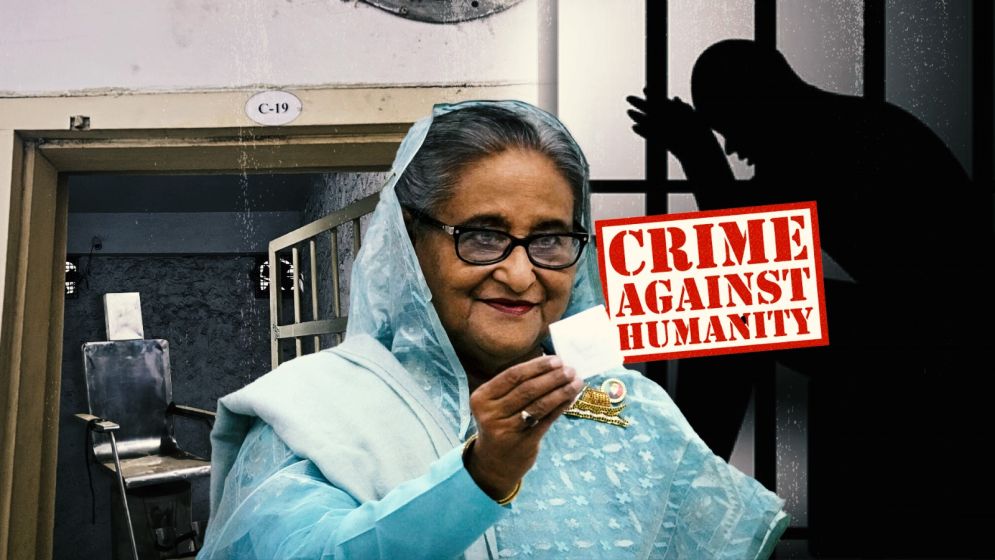
On February 12, Dr. Muhammad Yunus, the Chief Advisor of Bangladesh's Interim Government, visited the country’s most notorious secret detention centers—a group of facilities, collectively known as the "Mirror House" (আয়নাঘর).
One of these facilities, located in the Kakuchhet area of Dhaka, serves as a joint interrogation cell for the Defense Intelligence (DGFI). The Chief Advisor’s visit also included an inspection of the CPC-3 cells operated by the elite RAB-2 unit.
Accompanying Dr. Yunus on this significant visit were a number of government advisors, including Professor Asif Nazrul, Law, Justice and Parliamentary Affairs Advisor; Syeda Rizwana Hasan, Environment, Forest and Climate Change Advisor; Adilur Rahman Khan, Housing and Public Works Advisor; Mahfuz Alam, Advisor; Md. Nahid Islam, Information and Broadcasting Advisor; and Asif Mahmud Sajib Bhuiyan, Local Government, Rural Development and Cooperatives Advisor.
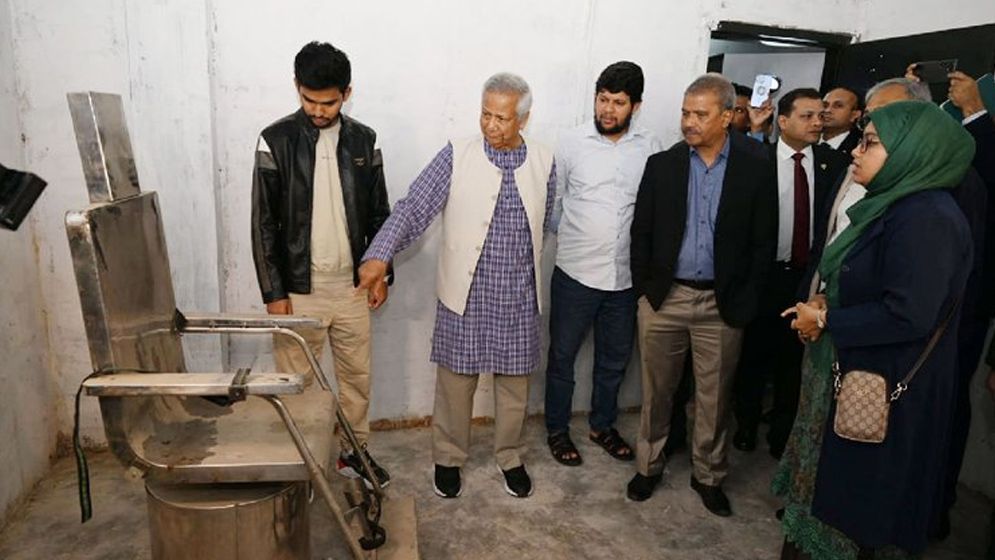
The visit also attracted significant attention from both local and international media, along with members of the Disappearance Commission and the Chief Prosecutor of ICT, Tajul Islam.
Importantly, the event was marked by the presence of eight victims of enforced disappearances, who shared their harrowing stories with the Chief Advisor and the gathered crowd of journalists.
As the Chief Advisor toured the "Mirror House," several victims of torture and their relatives took the opportunity to recount the brutal experiences they endured in these cells.
Among the most compelling testimonies was that of Retired Brigadier General Abdullah Azmi. In vivid detail, Azmi described the unspeakable torment he endured during his time in detention.
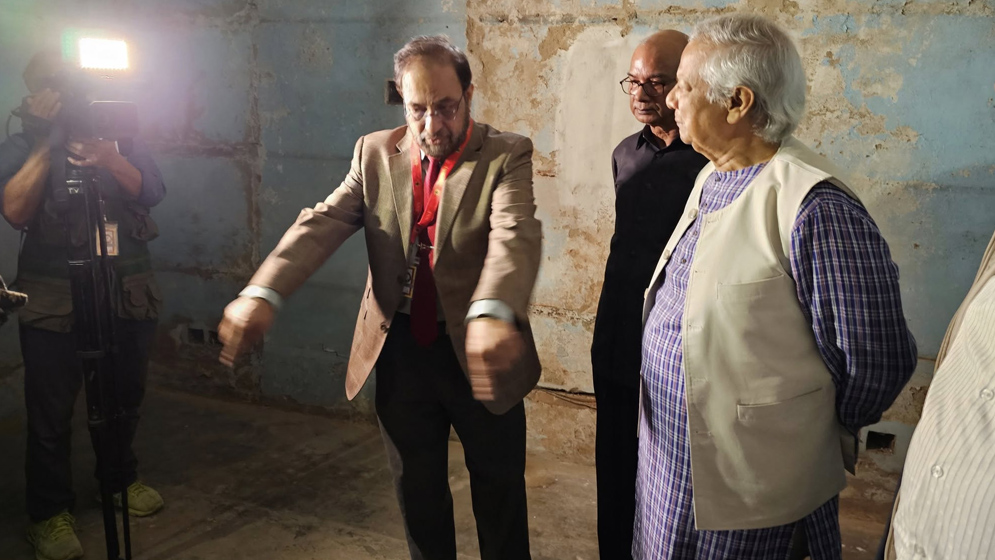
“My whole body would get rashes. I couldn’t walk. I couldn’t move. I couldn’t eat anything,” Azmi told Yunus, visibly shaken as he recounted his ordeal.
Photographs and videos captured during the visit have since been shared, offering a rare glimpse into the grim reality of these secretive facilities and the personal suffering of those who have been subjected to their horrors.
On Wednesday afternoon, Abdullah Azmi took to Facebook to express his heartfelt thanks to the Chief Advisor for including him on the visit to the Mirror House.
He wrote, "The Honorable Chief Advisor visited the long-awaited Mirror House. I am deeply grateful for being given the opportunity to accompany him. It is no exaggeration to say that this is an unprecedented event, not only in Bangladesh but possibly in the entire world, where a head of government has visited the place of torture alongside the oppressed, the tortured, and the suppressed victims of the previous fascist regime. This is a shining example for rulers worldwide."
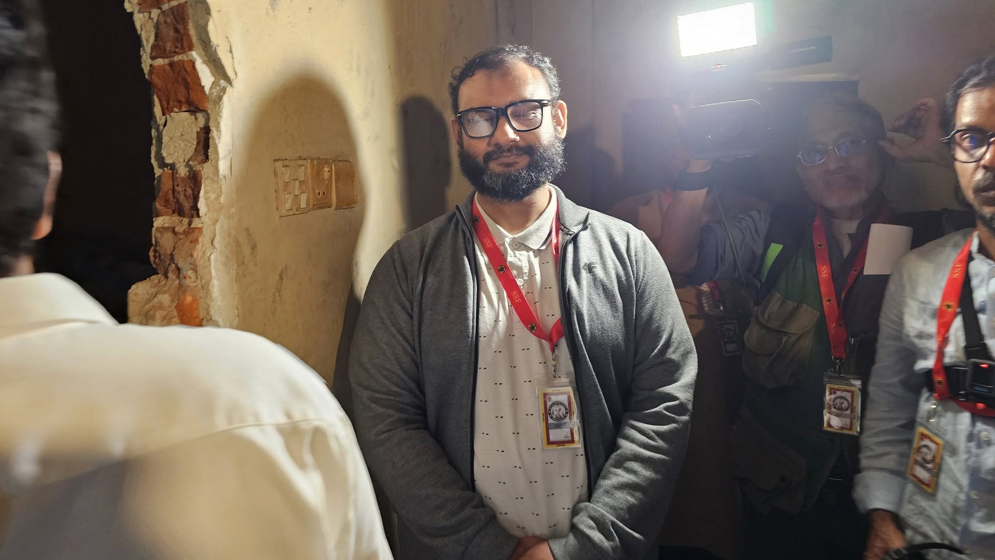
Barrister Mir Ahmed Bin Kasem Arman also shared his harrowing experience with the Chief Advisor during the visit, recounting the years he spent secretly detained in a small “Mirror House” located within the Rapid Action Battalion-1 compound in Uttara, Dhaka. He was held by Sheikh Hasina's security forces for eight years.
Describing the torture he endured in the Mirror House, Barrister Arman said, “Many times, I was kept blindfolded and handcuffed for 24 hours, forced to sit without being allowed to stand or move. If I asked why, they would say, ‘The sir is coming.’ I would sit facing the wall, blindfolded.” He added, “I was imprisoned here for eight years. During the day, I was blindfolded and handcuffed; at night, my hands were tied behind my back and I was handcuffed. If I asked why, they would say nothing. They didn’t even give me time to pray. It was a hellish experience for eight years.”
Sharing this grim experience with the Chief Advisor, he further explained, “I became very thin. Sometimes, it got unbearable. I would be kept blindfolded and handcuffed for 24 hours, forced to sit without being able to move. If I asked why, they would say, ‘The sir is coming.’ I would just sit there facing the wall, blindfolded.” Arman recalled, “I could sense someone coming from behind, hear the sound of a mobile ringtone, and smell expensive perfume... Meanwhile, the room would reek of urine and feces. I knew someone senior was watching from behind.”
Dr. Muhammad Yunus then asked, “When were you released?”
Arman replied, “What I later learned was that I was released on the morning of the 6th of August. They took us out on the morning of the 6th, after escaping on the 5th. When they brought me out, I thought they were going to kill me.”
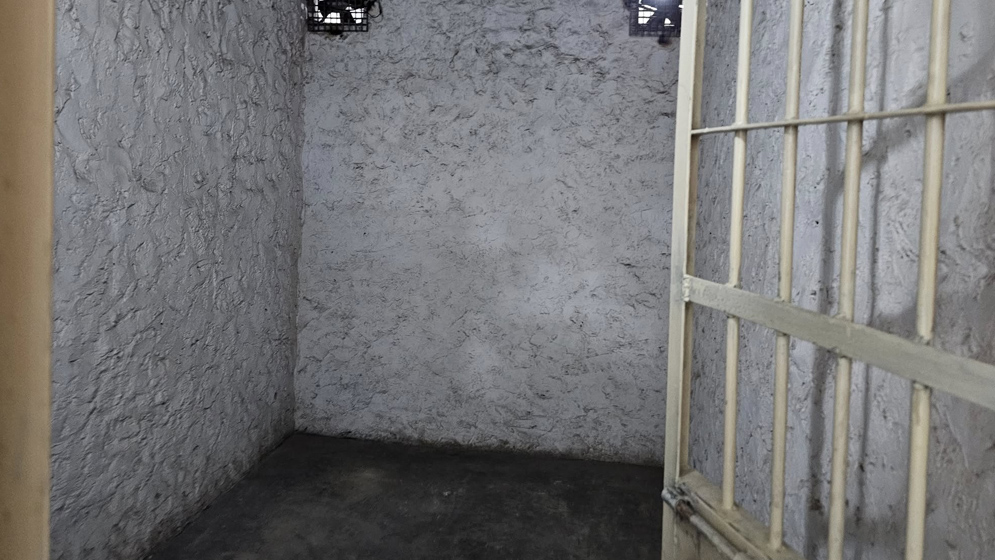
Mubashar Hasan, a former teacher at North South University in Dhaka and currently an Australia based geopolitical analyst and researcher on South Asia, was also detained and tortured in this same small detention center for 44 days in 2017.
During the visit to the Mirror House, Information Advisor Nahid Islam pointed out a room where he had been detained during the July movement.
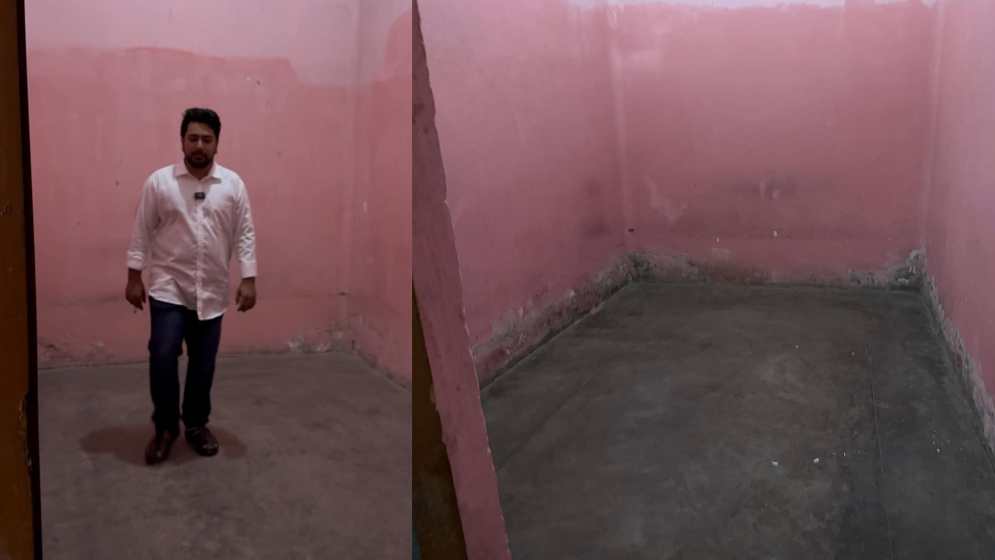
Reflecting on his time there, Nahid Islam shared, "I was arrested and brought here, where I was subjected to intense interrogation. When my eyes were opened, I saw a room like this. While I was in the room, my eyes were kept open, and my handcuffs were removed. But whenever they took me out, they would blindfold me and handcuff me again."
He further described the room, mentioning a wooden door with an iron door in front of it. Food was passed through the door, and the room had round yellow lights. The noise from outside was constant.
Nahid added that there was a vessel in the room, and if he needed to urinate, he had to do so there. On other occasions, he was taken to the washroom.
He also recalled that one side of the room had a basin-like structure used as a toilet. After August 5, the walls dividing the cells were demolished and repainted.
Following his inspection of the mirror room, Advisor Asif Mahmud pointed out that the ventilation fans in the upper wall slots of the room where he had been detained were no longer there.
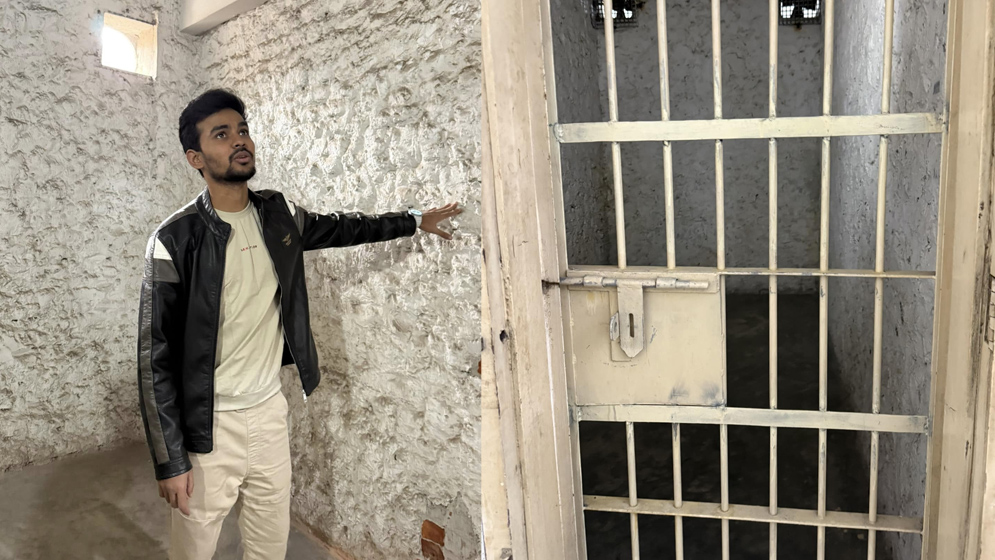
Asif also recognized the room by its walls, noting that it had been much smaller before. Now, the middle wall had been removed, making the room larger.
He had been held there for four days, during which he was not allowed any contact with the outside world. The toilet was outside the room, and he was blindfolded and escorted there.
It is believed that Rahat, a garment businessman, was kidnapped by RAB and was extorted for one crore taka.
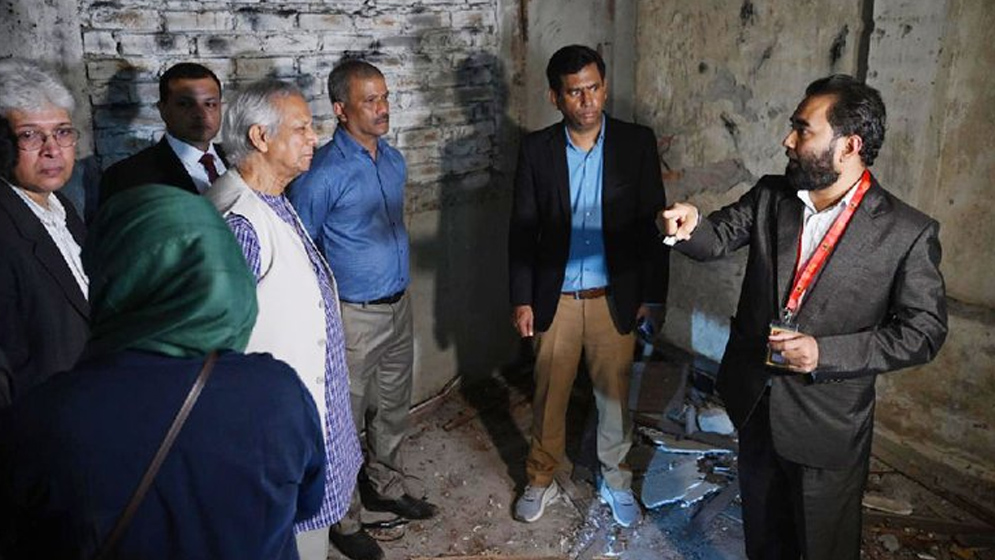
He attempted to negotiate, offering sixty lakh, but instead of being released, he was falsely implicated as an Islamic extremist and became another victim of enforced disappearance.
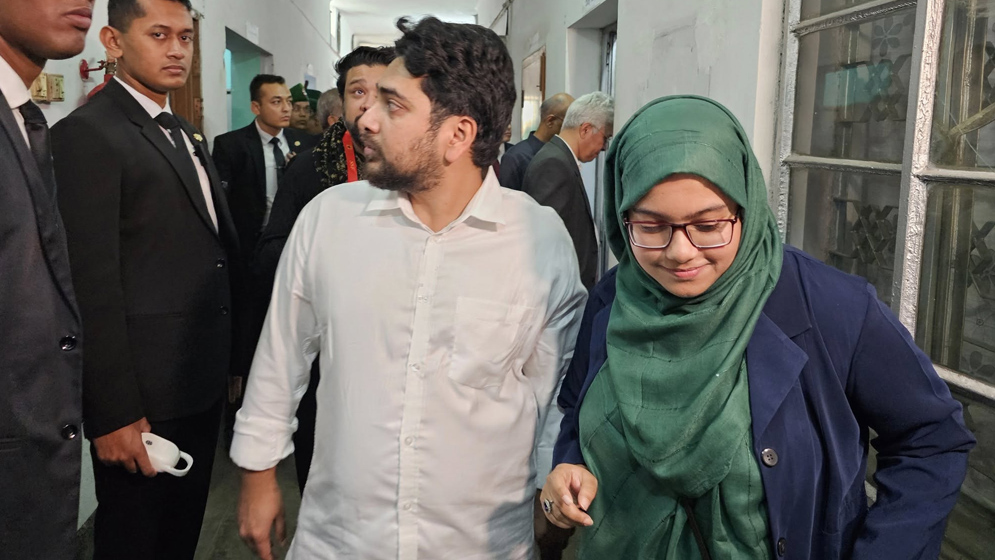
In 2016, Masud Ibrahim disappeared and was never found. He had written his name and the words "I Love My Family..." on the walls of the secret detention center.
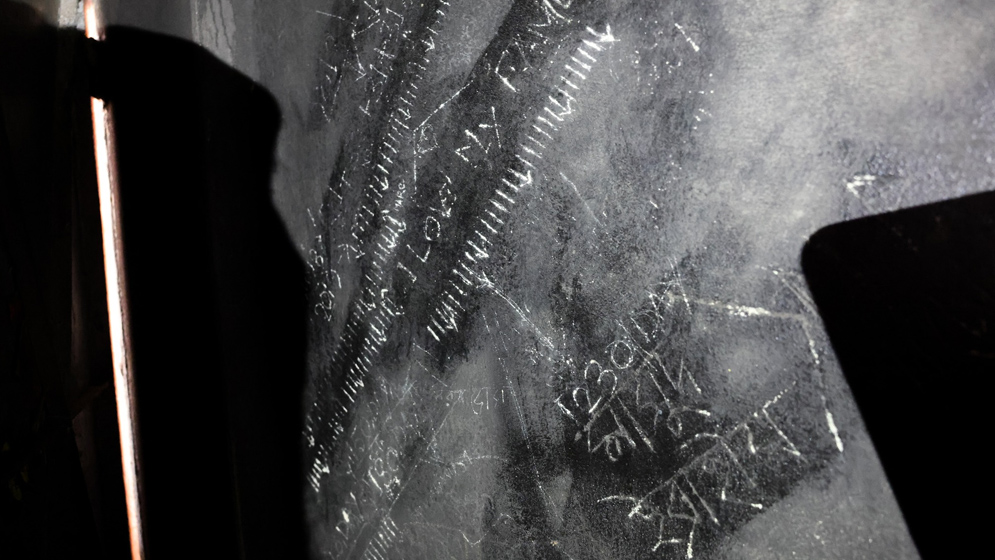
Nearly a decade ago, Sheikh Hasina's security forces abducted him and his mother. At just 11 years old, he was held in a secret torture chamber at the RAB office, where both endured unimaginable torment. While he was eventually released, his mother was never seen again.
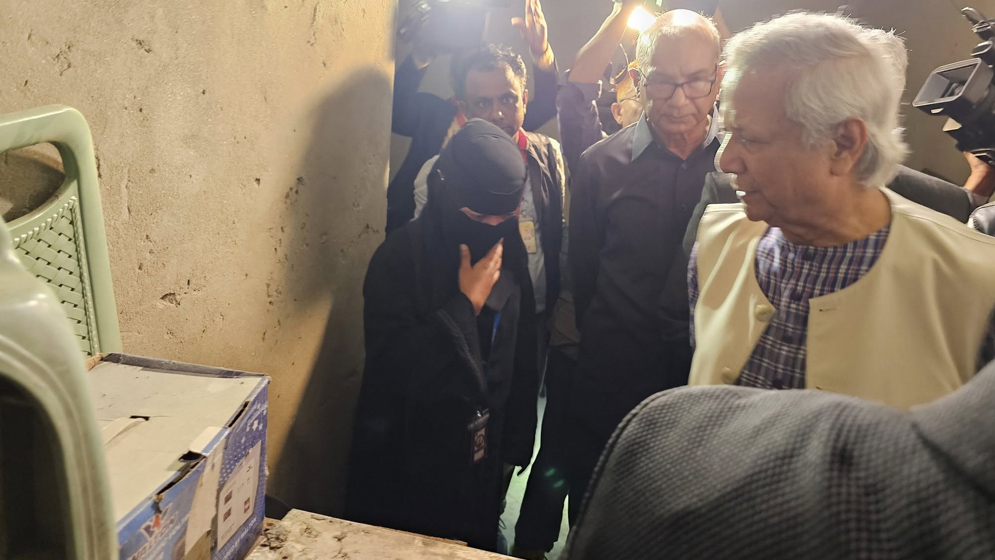
His kidnapping came as a result of his criticism of Indian Prime Minister Narendra Modi. At the time, he was a young businessman and father of three.
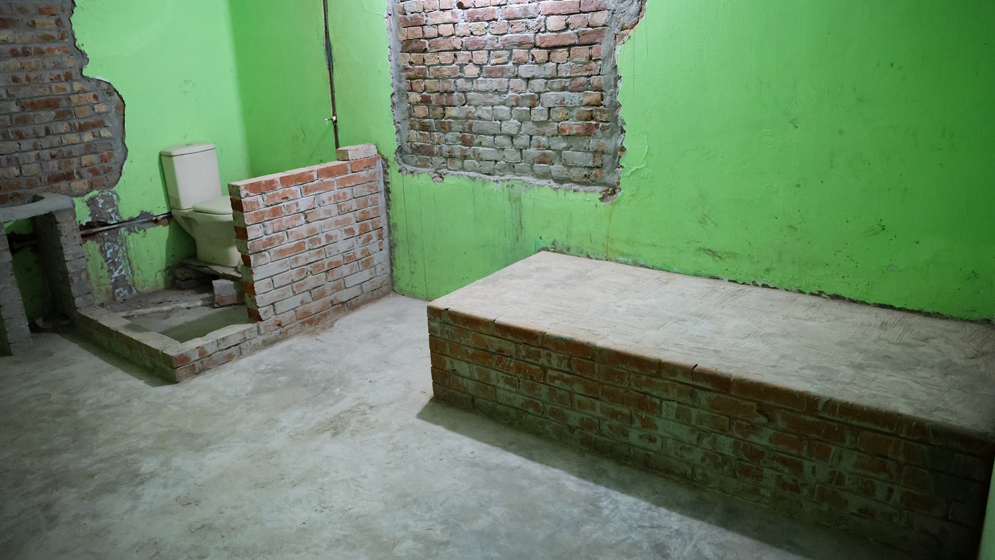
He was detained in the infamous Mirror Room at the RAB headquarters in Dhaka. Fortunately, he survived, unlike many others, and he later described the horrors of the room to Chief Advisor Dr. Muhammad Yunus.
In a separate development, after inspecting secret detention centers and torture cells operated by RAB and DGFI across three areas in Dhaka, the Chief Advisor addressed the media.
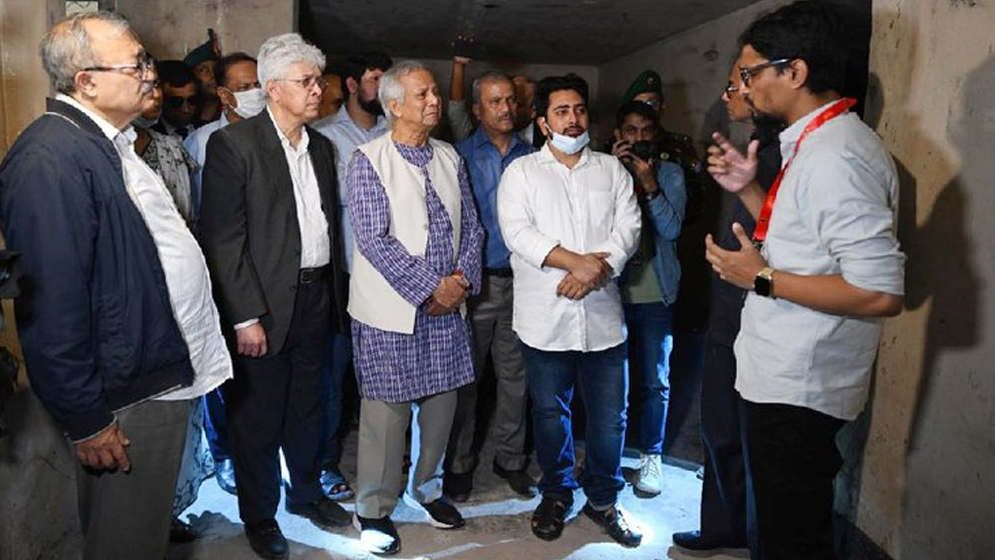
"What I witnessed is beyond words," he said. "If I had to describe it, I would call it a horrifying sight—far removed from any concept of humanity. The stories I've heard of enforced disappearances are utterly shocking—brutal, mindless torture. The more I hear, the more unbelievable it becomes. People were taken and tortured for no reason at all. Is this the kind of society we want? Is this the society we've created?"
He went on to condemn the previous government for creating a system of barbarism, of which the Mirror House is just one grim example.
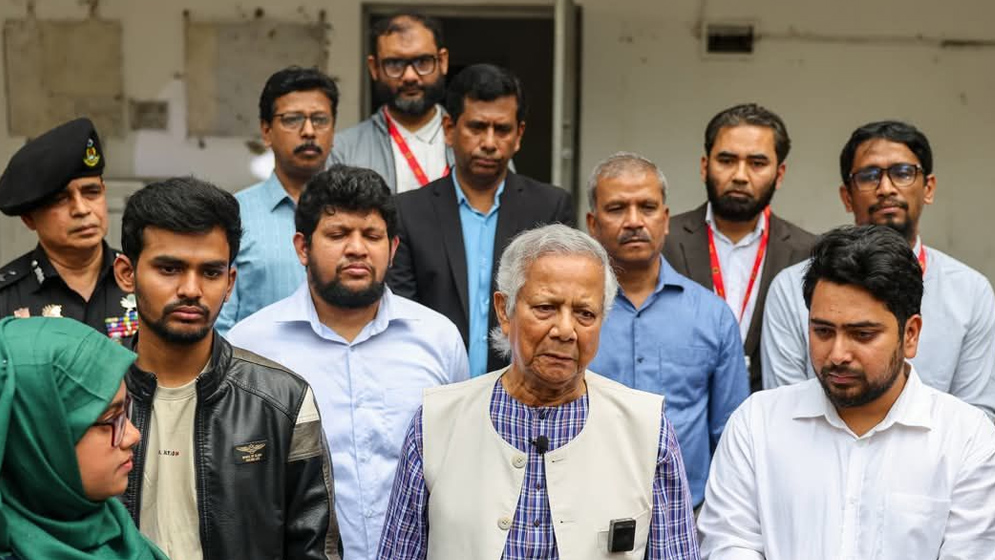
"The cells where they were kept were smaller than chicken coops in villages," the Chief Advisor remarked. "They were confined like this for months, even years, stripped of the most basic human rights."
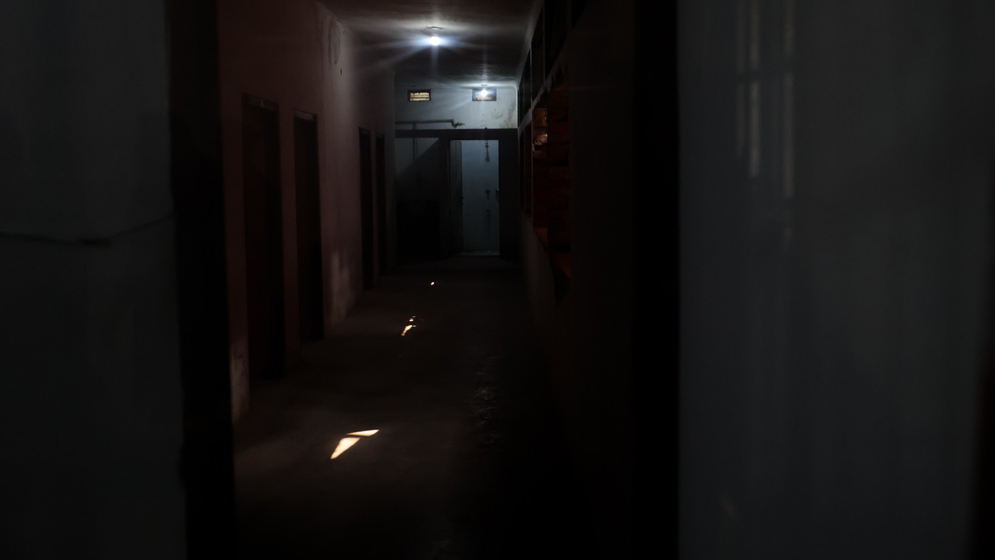
"It’s our collective shame that we allowed this to happen," he continued. "The perpetrators are our own children, brothers, and relatives. This society cannot survive if we do not pull ourselves out of this extreme oppression."
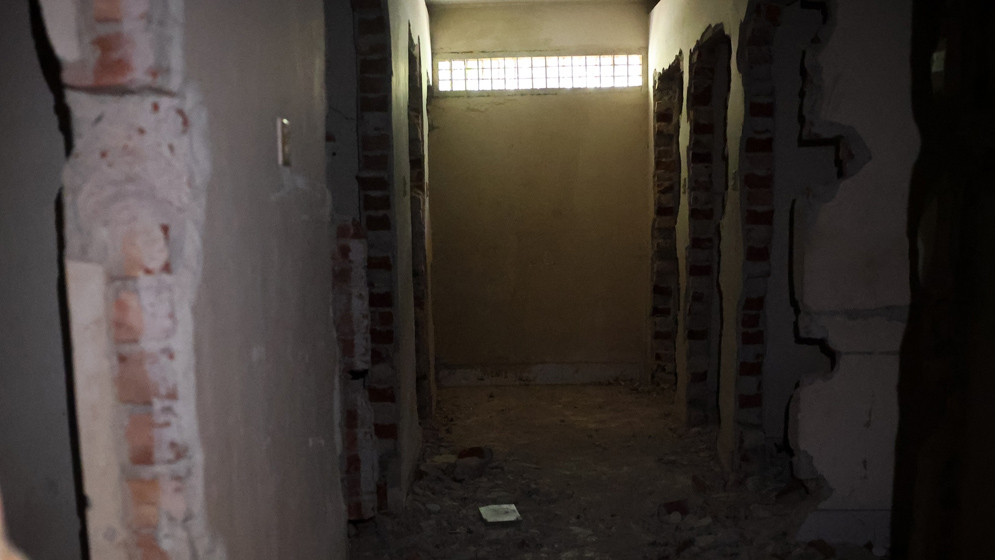
He also expressed deep gratitude to the commission, praising their efforts in uncovering these torture cells by tearing down walls with shovels.
The Chief Advisor emphasized the need for justice for those involved in these disappearances, stating, "Those responsible for this must be held accountable, or we will never find peace."
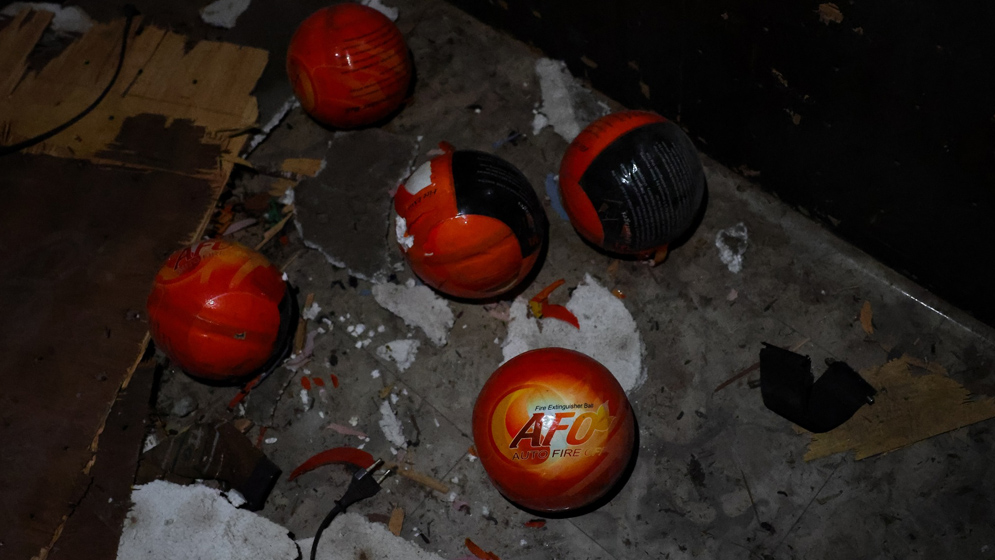
Meanwhile, the Chief Advisor's press secretary, Shafiqul Alam, revealed that over 800 Mirror Houses existed across the country. This disclosure came during a press briefing at the Foreign Service Academy in Bailey Road, Dhaka, on Wednesday.
He assured the public that every Mirror House would be exposed, adding that the Disappearance Commission and the International Crimes Tribunal were investigating whether the evidence of these secret centers had been destroyed.
—-
Photos are taken from the CA Press wing

